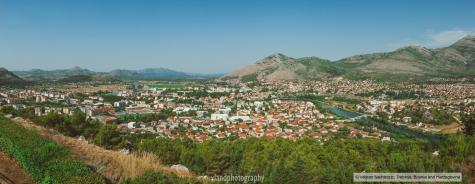
The third EPR of Bosnia and Herzegovina highlighted that the country has made headway in the development of economic instruments for environmental protection. However, these instruments have limited implementations and are often not reflecting efficient and effective principles. The country is still in need of a political framework to take full advantage of the green economy. The impacts of the COVID crisis have strengthened the urge for immediate actions.
While the country has a good potential and willingness to move toward a green economy, several obstacles are holding back the progress toward it. Economic incentives are oriented mostly towards public and not private entities, consumption is preferred to investment and imports exceed the exports. Greening the economy is crucial for the country’s economic growth, but also for its accession to Europe, its commitments to the Batumi Initiative on Green Economy (BIG) and the recovery from the COVID-19 crisis. Key to achieve sustainable development through inclusive growth and well-being, the momentum toward a greener economy also contributes to the meeting of several SDGs.
To spur the process, UNECE provided guidance through the development of an in-depth study aiming at providing an overall picture of the status of green economy in Bosnia and Herzegovina. It identified and analysed the different key sectors of economic activities and the different strategies, both at the European level with the country’s potential contribution, and at the local level. The study reported the possible sectors that could be targeted for a greening process, such as agriculture and waste and water management. It also underlined important themes including environmental taxation, climate change mitigation actions, energy efficiency and renewable sources, and touristic activities. Following this assessment, a future programme with a particular focus on the sustainable exploitation of natural resources and activities for greening the high-polluting traditional sectors could help the country achieve several sustainable Development Goals, while creating entrepreneurship opportunities, including for women and rural areas.

